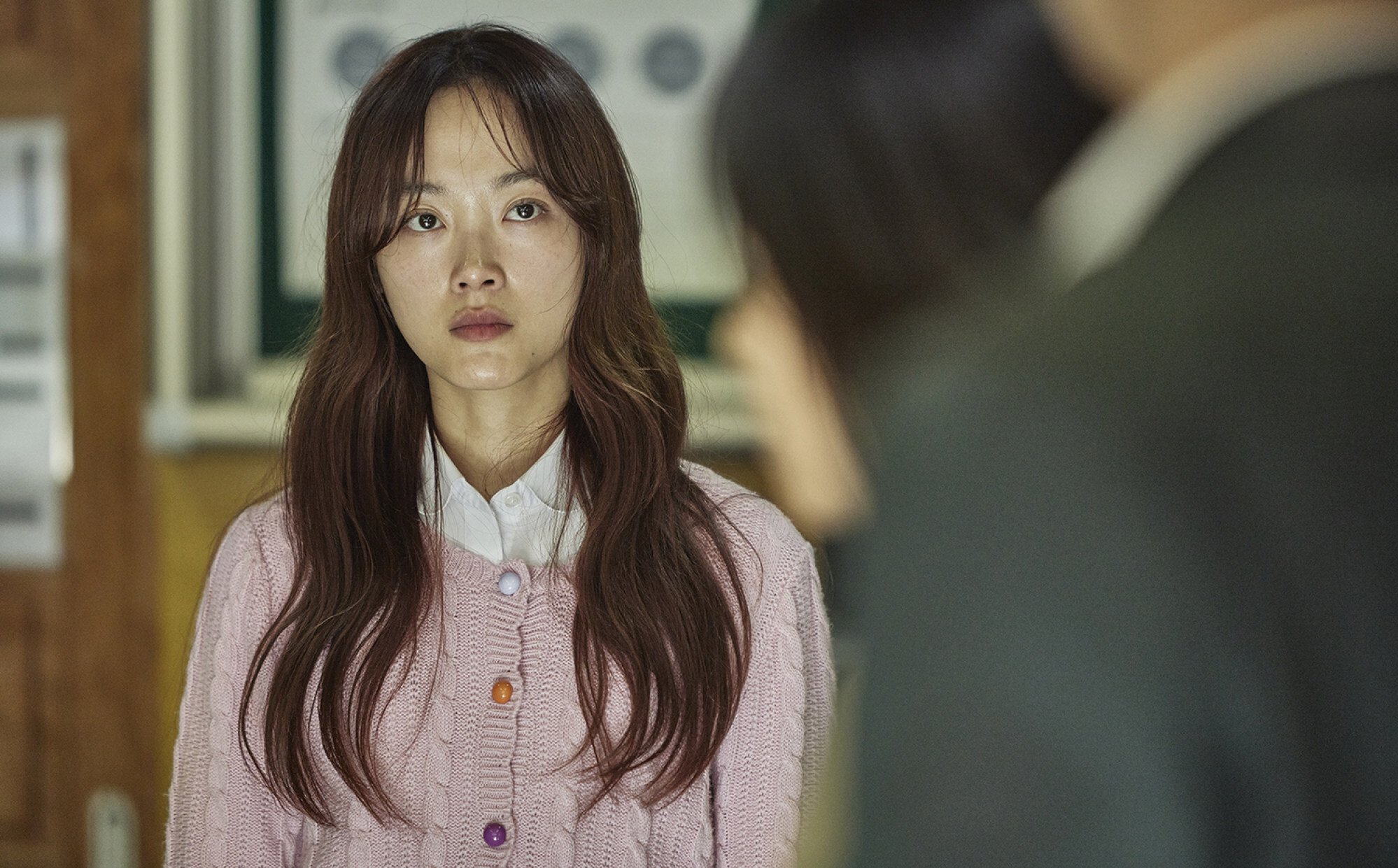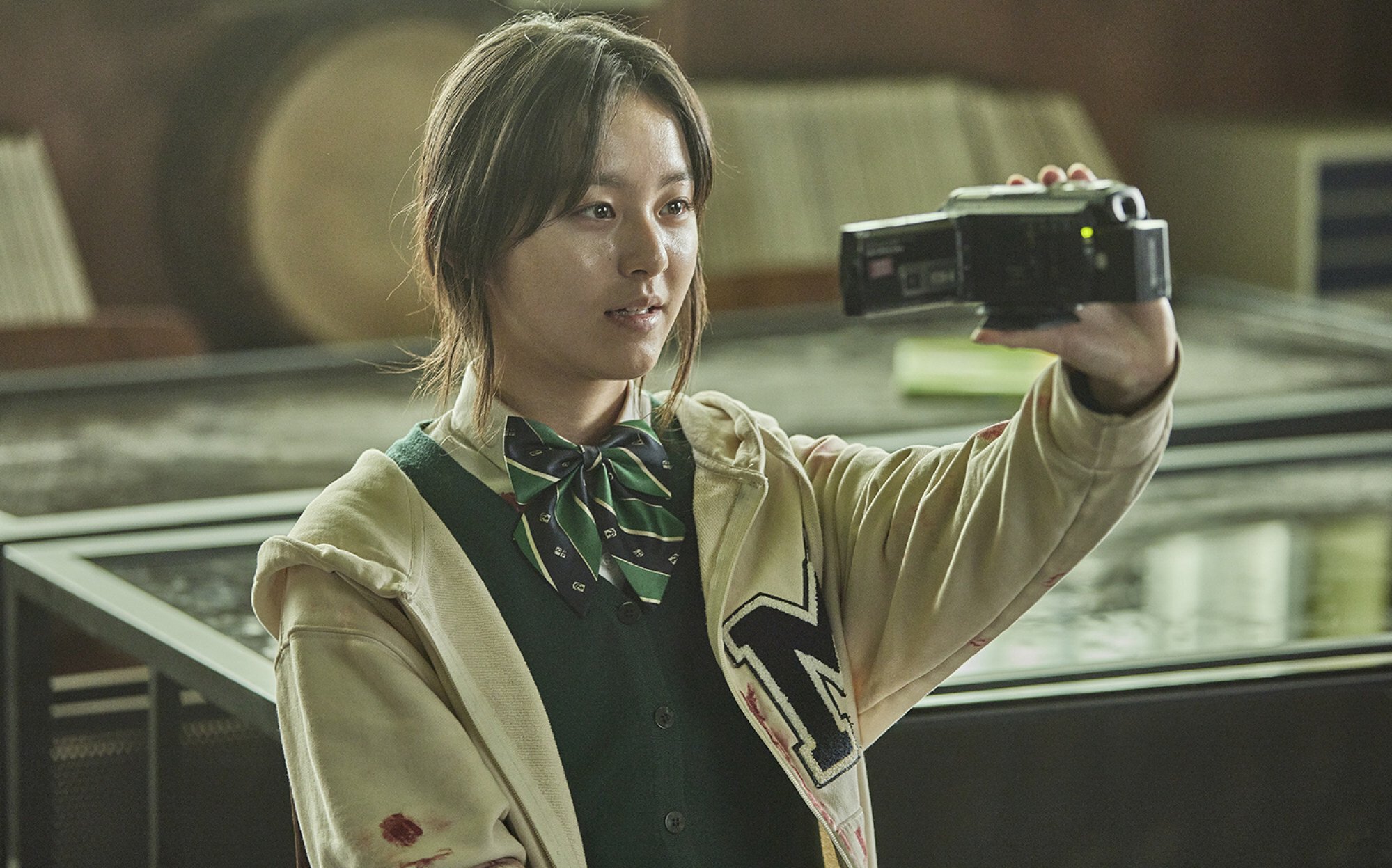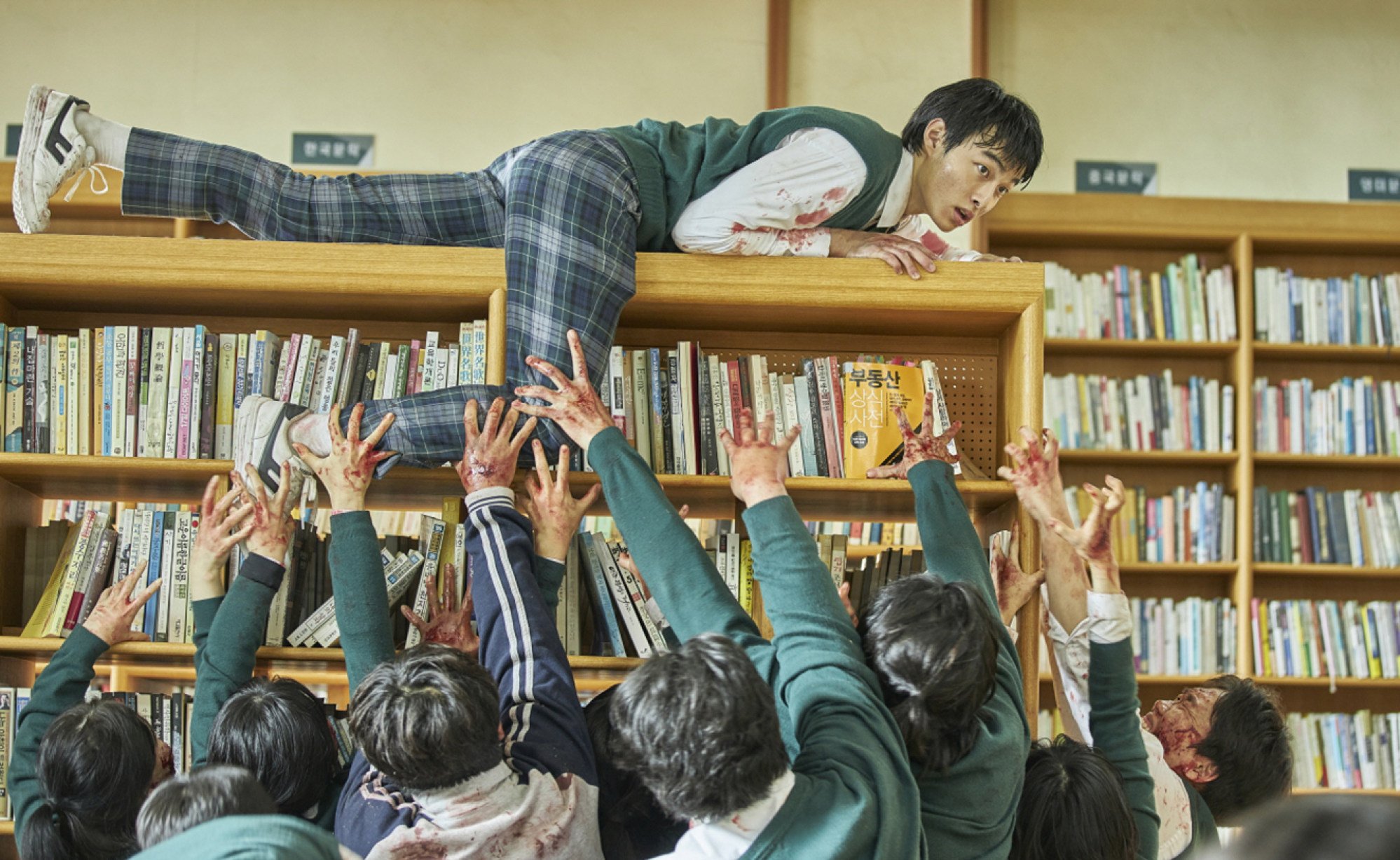
Review | K-drama review: All of Us Are Dead – Netflix’s high-octane zombie action-drama has a troubling moral core
- The series depicts a zombie outbreak that swiftly overwhelms a Korean high school and throws into confusion the emotions of the show’s teenage protagonists
- Amid the blood and gore, the moral implications of its wide-ranging themes and social commentary are bewildering, if not outright alarming
2/5 stars
Based on Joo Dong-geun’s webtoon of the same name, the show depicts a zombie outbreak that swiftly overwhelms a typical Korean high school (the local title of the source and series translates as Now at Our School).
This modern zombie saga opens with a bang in the midst of an act of school bullying that unfolds on a rooftop during a rainy night. After taking a beating, the victim snaps, or rather his limbs do, as he turns into something not quite human and fights back. Moments later, he is tossed over the parapet and sails down to the alley below.
The next morning the action moves to Hyosan High School at the start of a sunny day, with slickly sutured tracking shots that glide around the school and its many characters swiftly introducing viewers to the lay of the land.
This bright interlude proves to be a short one, before the writers gleefully pitch the school, its student body and, to a lesser degree, its faculty, into a maelstrom of blood, guts and mayhem. This initial alacrity, aided by the show’s lurid and dynamic staging, competently aligns us with the febrile emotions of the show’s teenage protagonists.
So far, so good. Despite the quick pacing and the melee of characters thrown at us, a clear picture emerges of the main protagonists and their relationships with, and feelings toward, one another.
These include Onjo (played by Park Ji-hoo, the star of celebrated indie film House of Hummingbird), a teenage girl who has picked this day to confess her feelings to her dreamy classmate Suhyeok (Park Solomon). Not so thrilled about this development is her childhood best friend Cheongsan (Yoon Chan-young), who has secretly been holding a candle for her for years.
Other characters include class president Namra (Cho Yi-hyun), whose phlegmatic disposition, rich family and top grades intimidate everyone at school, including Suhyeok, who is also harbouring a secret crush.

All of Us Are Dead kicks off with an impressive episode that is filled with energy and, much like the terrific pilot of The Walking Dead, amounts to a confident rendition of familiar zombie tropes. Yet under this slick veneer lies a network of hairline cracks, which are easy to gloss over at first, but grow more prominent as the show moves past its thrilling opening salvo.
Once the initial wave of pandemonium dies down, the series becomes a survival drama, with pockets of characters hiding out, mostly in different parts of the school, some in different areas of the fictional Hyosan town. As they learn to make peace with their predicament, these characters try to find ways toward each other, and ultimately to safety.

With 12 episodes that average an hour each, All of Us Are Dead is the longest Korean original series that Netflix has put out (if we discount the shows it licenses from other Korean networks). The first episode flashes by in the blink of an eye, but the same cannot be said for those that follow, which become mired in a repetitive pattern.
Internal strife pits survivors against one another, an external threat bands them together again, someone (invariably male) sacrifices themselves, the remainder escape, the story cools down for a sentimental interlude and then off we go again. Wash, rinse, repeat.
While the diminishing returns of the show’s narrative are a disappointment, the moral implications of its wide-ranging smorgasbord of social commentary are bewildering, if not outright alarming.
Some of these elements are purely superficial (teenage pregnancy) or mawkishly manipulative (the Sewol allusion sees kids finding a camcorder and recording tearful farewell messages to their families), but those that are prominent enough to affect the story morph beyond social allusions into paradoxical or antithetical themes.
All the characters who are bullied are painted negatively – the more cruel their victimisation, the more psychotic and unsympathetic a villain they become. The most hated and hateful character is a rich kid, yet the most awed among the group is part of the same social elite.

When the military eventually descends on Hyosan, the general who enacts the first martial law since the Gwangju Massacre is both a hardliner and a tortured moralist that the show demands we sympathise with.
These troubling characterisations trickle all the way through the story. You’ll find no less than three characters of varying importance who all become the subject of fat shaming.
Korean zombie mythmaking has been inextricably – and often thrillingly – tied to social commentary, but while All of Us Are Dead gladly continues that pop culture relay race, the people carrying the baton seem to be part of the problem rather than the ones who should be trusted to talk about it.

All of Us Are Dead will start streaming on Netflix on January 28.

